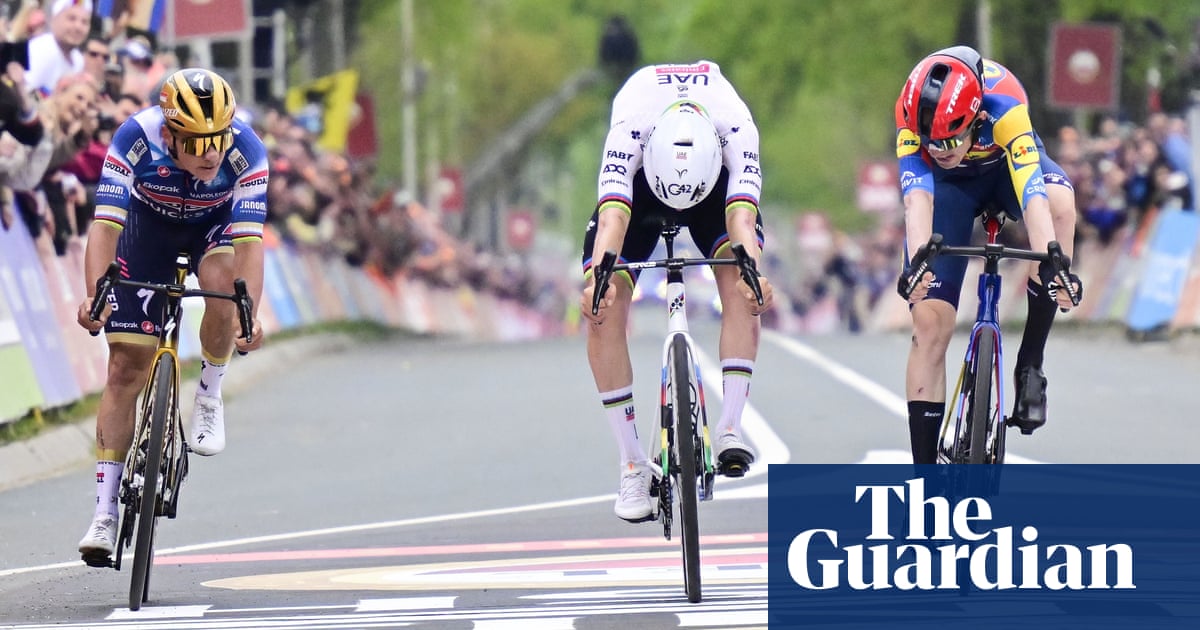Mattias Skjelmose claimed a shock victory at the men’s Amstel Gold Race as he won a sprint finish against the favourite, Tadej Pogacar, and the Olympic champion, Remco Evenepoel.
It was supposed to be a fight between Pogacar – the world champion – and Evenepoel but Denmark’s Skjelmose (Lidl-Trek) had not read the script as he beat Pogacar by the width of a tyre. Evenepoel, who recently returned from serious injuries sustained in a crash, was third.
The race took place over 255km from Maastricht in the Netherlands and concluded in gripping circumstances in Valkenburg. “I was riding for the podium,” Skjelmose said. “Already the podium would be a really good result for me. Of course, you sprint for the best result but I thought I was going to cramp, or see them go into the horizon.“
Pogacar (Emirates-XRG) appeared to have the race won when he built up a 25sec lead with about 40km remaining after going solo at the front and extended it to 30sec.
Skjelmose, 24, was the first to try to catch the three-time Tour de France and multiple Classics winner and was then joined by Belgium’s Evenepoel (Soudal-Quick-step). Working together the duo ate into Pogacar’s lead over the final climbs.
There was seemingly nothing to separate the riders in the surge to the line but Skjelmose nosed in front at the last to claim the biggest win of his career.
Wout van Aert (Visma) was fourth, leading a chasing pack 34 seconds back ahead of fifth-placed Michael Matthews (Jayco Alula), Louis Barré in sixth (Intermarché-Wanty), then Romain Grégoire (Groupama-FDJ), Tiesj Benoot (Visma), Tom Pidcock (Q36.5) and Ben Healy (EF Education-Easypost) rounded out the top 10. Brandon McNulty (Emirates-XRG) was at the back of that group but finished 11th.
Sign up toThe Recap
The best of our sports journalism from the past seven days and a heads-up on the weekend’s action
after newsletter promotion
In the earlier women’s race, which took place over a 157.3km route, an all-Netherlands top three was topped by Mischa Bredewold of SD Worx-Protime, the first big Classics victory of her career. She finished 7sec ahead of Lidl-Trek’s Ellen van Dijk. Puck Pieterse (Fenix-Deceuninck) took the final podium place, finishing in the same time as Juliette Labous (FDJ-Suez), while Silvia Persico (UAE Team ADQ) was fifth.
Bredewold’s teammate and compatriot Anna van der Breggen, who won the race in 2016, crashed heavily just after the 100km mark and was forced to withdraw.
